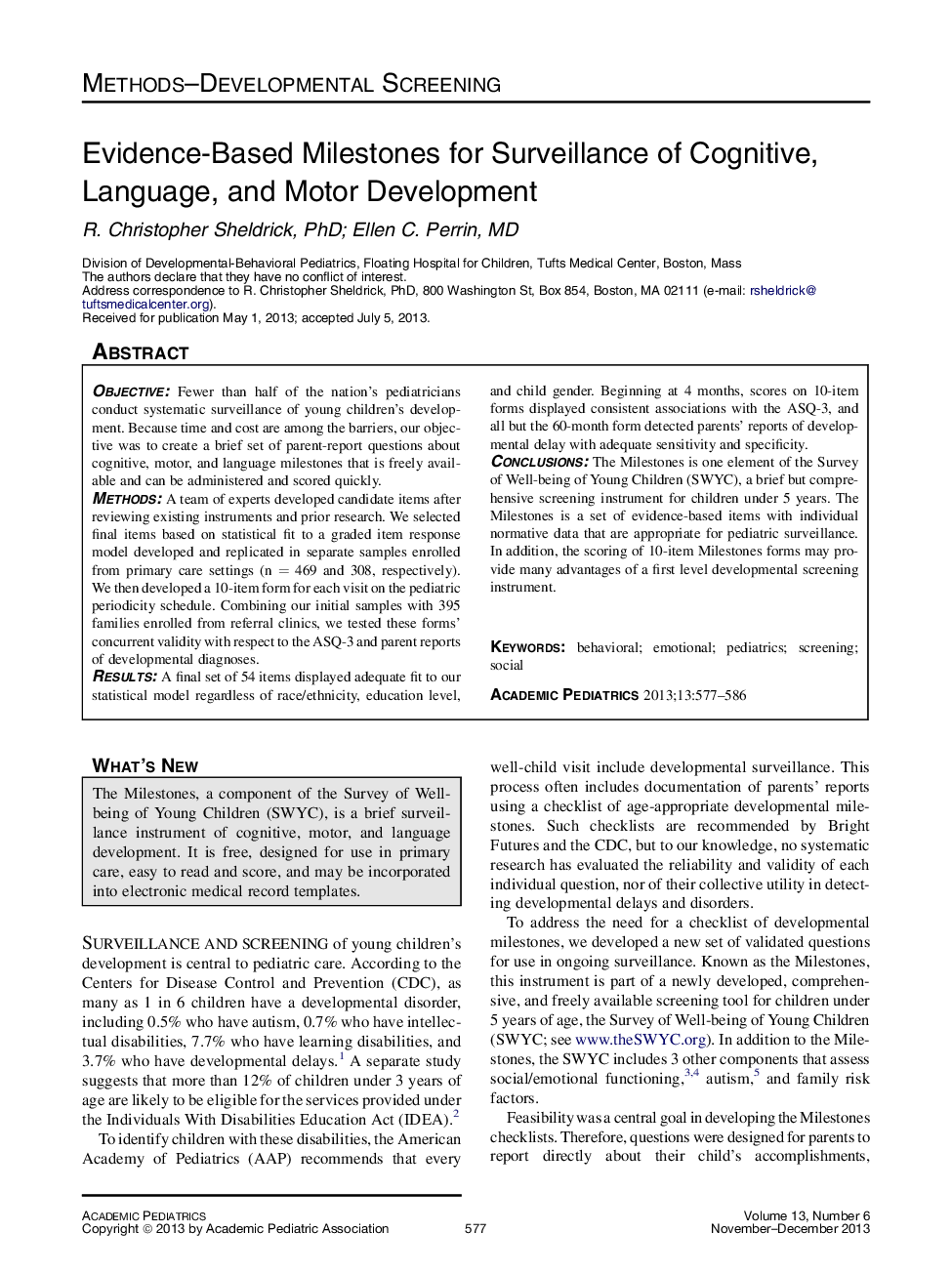| Article ID | Journal | Published Year | Pages | File Type |
|---|---|---|---|---|
| 4139280 | Academic Pediatrics | 2013 | 10 Pages |
ObjectiveFewer than half of the nation’s pediatricians conduct systematic surveillance of young children’s development. Because time and cost are among the barriers, our objective was to create a brief set of parent-report questions about cognitive, motor, and language milestones that is freely available and can be administered and scored quickly.MethodsA team of experts developed candidate items after reviewing existing instruments and prior research. We selected final items based on statistical fit to a graded item response model developed and replicated in separate samples enrolled from primary care settings (n = 469 and 308, respectively). We then developed a 10-item form for each visit on the pediatric periodicity schedule. Combining our initial samples with 395 families enrolled from referral clinics, we tested these forms’ concurrent validity with respect to the ASQ-3 and parent reports of developmental diagnoses.ResultsA final set of 54 items displayed adequate fit to our statistical model regardless of race/ethnicity, education level, and child gender. Beginning at 4 months, scores on 10-item forms displayed consistent associations with the ASQ-3, and all but the 60-month form detected parents’ reports of developmental delay with adequate sensitivity and specificity.ConclusionsThe Milestones is one element of the Survey of Well-being of Young Children (SWYC), a brief but comprehensive screening instrument for children under 5 years. The Milestones is a set of evidence-based items with individual normative data that are appropriate for pediatric surveillance. In addition, the scoring of 10-item Milestones forms may provide many advantages of a first level developmental screening instrument.
